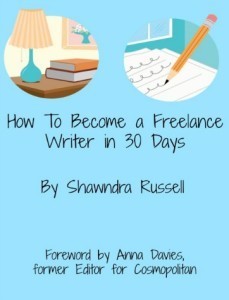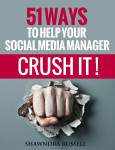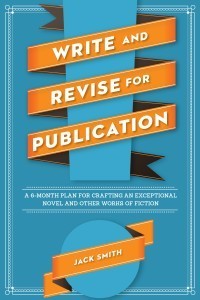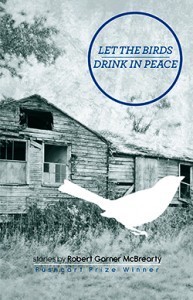Riley Adams's Blog, page 136
April 26, 2014
Twitterific Writing Links
by Elizabeth S. Craig, @elizabethscraig
Twitterific links are fed into the Writer’s Knowledge Base search alengine(developed by writer and software engineer Mike Fleming) which has over 23,000 free articles on writing related topics. It’s the search engine for writers.
An Agent’s Role in Shaping an Author’s Career and the Second Book: http://ow.ly/vOEIT @ElisabethWeed @writerunboxed
Are Your Stakes High Enough? http://ow.ly/vOCeB @janice_hardy
Why a Writing Routine Matters and How to Start One: http://ow.ly/vMsYi @stacyennis
5 qualities important to successful self-publishing: http://ow.ly/vMoOt @ninaamir
10 Moments in the Writer’s Life: http://ow.ly/vMsbx @rchazzchute
The Pros & Cons of Small Presses: http://ow.ly/vMnAB @ibelieveinstory
Promo No-Nos for Authors: http://ow.ly/vMnqC @kgmccullough
Is Norway Paradise for Publishers? http://ow.ly/vMo73 @pubperspectives @DennisAbrams2
How to write a novel if you’ve never done it before: http://ow.ly/vMsgr @janelebak
How to Find and Choose a Literary Agent: http://ow.ly/vMoxu @WritingForward
15 Ways To Improve KDP � Progress Report: http://ow.ly/vISQ0 @DavidGaughran
Amazon’s Fan Fiction Kindle Worlds Offers Access to Writers: http://ow.ly/w0GiL @ZimblerMiller
People are up to twice as creative when they’re walking, study reveals: http://ow.ly/watW9 @MailOnline
5 Ways To Impress A Literary Assistant (Or At Least Not Irritate Them): http://ow.ly/vY42z @salrowb
All Character, No Plot: http://ow.ly/vY3W7 @mooderino
Podcasts for Writers: http://ow.ly/vY3ID @jocelynk414
Do You Know Your Novel’s Theme? http://ow.ly/vY4Il @janice_hardy
Why Spec Scripts Fail: Failure To Do Your Homework: http://ow.ly/vY4xA @stewartfarquhar @scriptmag
What Makes a Good Writer? http://ow.ly/vY5iS
In Defense Of ‘Difficult’ Books http://ow.ly/vY4nM @huffpost
Plotting With Yes or No Questions: http://ow.ly/vY6tE @Janice_Hardy
Nonfiction Dialogue: http://ow.ly/vY4hS @eb_bartels
Author Myths: http://ow.ly/vY5cK @BlakeBooks
A Simple Hyphenation Rule: http://ow.ly/vY6qW @CSLakin
Balancing the Business Side of Writing: http://ow.ly/vY6oC @Kathy_Collins
One writer defends being a no-niche blogger: http://ow.ly/vY5l1 @KimUlmanis
Free the Writers! (From Each Other): http://ow.ly/vY6zA @Porter_Anderson @writerunboxed
Hooking Boys on Books: http://ow.ly/w9xE4
Publishing with a Small Press: http://ow.ly/vY49V @courtneymauk
5 Warning Signs Your Story Needs Revision: http://ow.ly/vY4jM @kristenlambtx
10 Best Selling Self-Published Authors: http://ow.ly/vWTJH @TheRichest_Com
How to Become a Freelance Writer in 900 Simple Steps: The Existential Crisis: http://ow.ly/vWUhk @writerscramp1
How to Create a Print Book http://ow.ly/w4bKF @JulieMusil
Rules for mystery writing? There are no rules. http://ow.ly/w8P0u @JungleReds
How to Make an Audio Book: http://ow.ly/vWTrx @HazelGaynor
Giving Fans a Good Series Finale: http://ow.ly/vWTTE @julie_glover
In Defense Of Low-Stakes Storytelling: http://ow.ly/vWTHi @io9
Self-Published Authors Don’t Need a New Term: http://ow.ly/vWTXr @brooke_warner
Crowdfunding a Debut Novel – One Writer’s Story: http://ow.ly/vWUga @nickdaws
Romance Roundtable: – Writing Sex Scenes: http://ow.ly/vWTFq @EliseCyr
How to Write a Great Antagonist: http://ow.ly/vWTnv @ava_jae
7 Ways to Quickly Write Books (That Don’t Suck): http://ow.ly/vWTy3
How to Start Your Novel: http://ow.ly/vWUiV @ChuckSambuchino
‘Game of Thrones’ Author George R.R. Martin: The Rolling Stone Interview: http://ow.ly/w7FzB @rollingstone
The genre debate: We don’t think of Dickens as a historical novelist: http://ow.ly/vWTti @guardianbooks
Writers admire star indie authors and follow their craft and promo advice. Do we read their books? http://ow.ly/w7tMq @Porter_Anderson
Should Editors be Writers? http://ow.ly/vWTPA @noveleditor
Decline in male readers alarms authors: http://ow.ly/vVLv0 @guardianbooks @The_Real_McNab
Creating Stunning Character Arcs: The First Half of the Second Act: http://ow.ly/vVMFp @KMWeiland
10 Things 1 Author Would Like To Say To Young Writers: http://ow.ly/vVLHO @ChuckWendig (lang.)
Mandatory Solitude: Writers: http://ow.ly/vVB7H @booksthatmatter
Action Too Early in a Book: http://ow.ly/vVLrv @beccapuglisi
A Tip for Avoiding Plot Holes: http://ow.ly/w4J1J
5 Quotes On Books and Writing From the Old Masters: http://ow.ly/vVzia @johannthors @bookriot
Paulo Coelho: Ignore the Web’s anonymous; they’re miserable: http://ow.ly/vVxVs @ChrisMatyszczyk
The Best Apps for Any Kind of Writing: http://ow.ly/vVxx7 @kingthor
When an author should self-publish and how that might change: http://ow.ly/vVyAZ @MikeShatzkin
Embrace the Tech We Authors Need to Succeed: http://ow.ly/vVzp3 @Jason_Matthews @JFBookman
Screenplay Review – Demolition: http://ow.ly/vVA1K @scriptshadow
3 ways to keep your book sales up as eBook sales slow down: http://ow.ly/vVy3i @Bookbaby
Using A Crowd To Create Tension In Your Story: http://ow.ly/w4ONt @SharlaWrites
How Agatha Christie Hooked Readers: http://ow.ly/vVytT @woodwardkaren
The Bad Writing Advice that Kills Your Success: http://ow.ly/vVy8a @menwithpens
Writing lessons learned from WOOL: http://ow.ly/w4bCI @JulieMusil
6 different travel writer personalities: http://ow.ly/vVyKH @MatadorNetwork
Starting Your Novel: The First Choice You Need to Make: http://ow.ly/w4Oo4 @lesliemillernow
Indie Bookstores’ Great Business Practices: http://ow.ly/vVxK4 @flavorwire @imjasondiamond
Does publishing’s gender gap affect boys’ reading habits? Chat at #EtherIssue 11 a.m. ET/4 p.m London (now) @Porter_Anderson @scribblestreet
James Patterson On How To Write An Unputdownable Story: http://ow.ly/vVyex @joeberkowitz
The Writing Process: Get Sh*t Done: http://ow.ly/vVz81 @rebeccatdickson
How Not to Begin Your Novel (by Julia A. Weber): http://ow.ly/w3zAb
How to Cross ‘the Line’ and Take Your Novel to the Next Level: http://ow.ly/vVxAM @Janice_Hardy
Diversity Is Not Enough: Race, Power, Publishing: http://ow.ly/vVxOU @djolder
10 Must-Dos for Writers: http://ow.ly/vVzIj @stevelaubeagent
Fictitious Dishes: Elegant and Imaginative Photographs of Meals from Famous Literature: http://ow.ly/vVxZj @brainpicker
Parts of Story: Scenes: http://ow.ly/vQvFS @woodwardkaren
The power of the short story : 5 reasons we should write them (and read them): http://ow.ly/w3zG0 @IBMartyn
Literary vs. Genre Fiction: http://ow.ly/vQvC1 @jamigold
The Case for Made-Up Words: http://ow.ly/vQvZ9 @Sarah_Skilton
Game: How to be a writer: http://ow.ly/vQwCJ @CartoonKahuna @gaufre @Joypress @paperhaus
Writing is tough–support from others is vital to continuing: http://ow.ly/vQv9y @marymontanye
Is the lack of reading by boys due to gender imbalance in the industry? http://ow.ly/w3inT @scribblestreet @Porter_Anderson
What Film Teaches Writers about Editing: http://ow.ly/vQvpf @BTMargins
How writing fiction helps us confront the uncertainties of life: http://ow.ly/vQxty @vgrefer
5 Tips for Writing Quickly and Effectively: http://ow.ly/vQwm8 @workawesome
How Writers Can Work with Game Developers: http://ow.ly/vQw87 @MarkPiesing
Getting Down to Writing: Dealing With Common Issues Preventing it: http://ow.ly/vQvNe
Finding that Masterpiece Within: http://ow.ly/vQwQP @DLKoontz
All Character, No Plot: http://ow.ly/vQv38 @mooderino
Should You Fire Your Literary Agent? 10 Signs It’s Time To Say Good-bye: http://ow.ly/vQxyK @writersrelief
Hate-Reading: http://ow.ly/vQwhu @SadieStein @ParisReview
The novice’s guide to writing: http://ow.ly/vQx9R @JFGibsonWriter
Purging Your Writing Fear: http://ow.ly/vQvxU @beccapuglisi
A writing resource for information on improving your craft–the WKB: http://ow.ly/vOoiG @DarlaGDenton
A tip for writing strong characters: http://ow.ly/vOEfH @scriptquack
Do Negative Thoughts Give You Writer’s Block? 5 Ways To Cut Loose: http://ow.ly/vOCaK @writetodone
8 Steps to an Agent, a Publisher, and a 2-Book Deal : http://ow.ly/vOCmn @DonnaGalanti
Signing A Contract for an Unfinished Manuscript: http://ow.ly/vODSB @LiteraryMinded
4 Common Attributes of Successful Writers: http://ow.ly/vOCD0 @NatRusso
4 Kinds of Editors (and Agents) You’ll Meet In Publishing Heaven: http://ow.ly/vODeI @literaryeric
10 Rules of Fiction Writing as Culled by The Guardian: http://ow.ly/vOE1J @ManRepeller
How to Get More Views on YouTube (video): http://ow.ly/vODFK @bookgal
Journalists are the least well-read people? http://ow.ly/vOCOm @guardianbooks
The 10 Worst Pieces of Writing Advice You Will Ever Hear: http://ow.ly/vODMX @manzanitafire
A character conflict generator: http://ow.ly/vZFQw @daretoeatapeach
Making it as a Travel Writer: http://ow.ly/vODqZ @alexleviton
The Translator as Agent: http://ow.ly/vODC7 @oliviasnaije
7 Reasons Most Authors Fail: http://ow.ly/vOEAE @SeanPlatt
Good locations for murders in crime fiction: http://ow.ly/vZ0GZ @mkinberg
Some self-pubbed writers still limiting themselves to printed books: http://ow.ly/vOCsF @ScottTheWriter
8 Writing Strategies for People Who Say They Can’t Write: http://ow.ly/w0Hb1 @CatClifford
The genre debate: ‘Literary fiction’ is just clever marketing: http://ow.ly/w0H8S @elizedmondson
Follow Through with Your Action: http://ow.ly/wbLNt @write_hook
Crafting an Ending that Sings: http://ow.ly/w0GOU @stdennard
Writing Characters that Sell: http://ow.ly/w0GAE @shalvatzis
How to Write a Novel Synopsis: 5 Tips: http://ow.ly/w0GfH @ChuckSambuchino
Author Website Checklist: 31 Items to Get Right: http://ow.ly/w0FSD @fictionnotes
How Traveling Can Inspire You to Write Creatively: http://ow.ly/w0GaX @write_practice
7 essentials for writing a good novel: http://ow.ly/ @roz_morris
Making Good Characters Rationally Self Destructive: http://ow.ly/w0GrB @bookviewcafe
6 Ways to Enjoy the Editing Process (Seriously): http://ow.ly/w0GDd @Write_Tomorrow
6 Defining Characteristics of Strong Female Protagonists: http://ow.ly/w0GvZ @writers_write
How to Write a Novel as a Collaborative Team: http://ow.ly/w0G79 @AdriennedeWolfe
The Yellow Light Reversion Clause: http://ow.ly/w0Gdn @HughHowey
How to Write a Great Science Fiction Novel in 7 Easy Steps: http://ow.ly/w0H1q @io9
10 Great Movies About Writing: http://ow.ly/w1ywO @ericblairlives
An Editor’s Skill Set: Feedback: http://ow.ly/w1yVu @changeitupedit
3 reasons hybrid publishing isn’t for everyone: http://ow.ly/w1yHw @JanetKGrant
Why the German market is important for self-published authors: http://ow.ly/w1ypG @EviChantzi
Making a Good Script Great: http://ow.ly/w1z5H @scriptmag
How Repetition Weakens a Story, and What You Can Do: http://ow.ly/w1zGn @annbauerwriter
An Agent with 6 Reasons You Need A Literary Agent: http://ow.ly/w1yPM @carlywatters
15 Places to Promote Your Book for Free: http://ow.ly/w1zh6 @galleycat
For kids’ book author Mo Willems, childhood is an awful time: http://ow.ly/w1z28 @CBSSunday
The post Twitterific Writing Links appeared first on Elizabeth Spann Craig.
April 24, 2014
Hooking Boys on Books
by Elizabeth S. Craig, @elizabethscraig
This post is written by both Elizabeth the Mom and Elizabeth the Author. Although the subject of encouraging boys to read is one that’s been important to me for seventeen years, it recently came to the forefront of online debates with the publishing of a report by UK writer Jonathan Emmett. The report’s findings were covered by industry reporter Porter Anderson in his Publishing Perspectives story on April 22, “What if Boys Can’t Find the Right (Reading) Stuff?” The report focuses on the gender gap in both reading ability and interest in books, and looks for possible causes.
What I wanted to cover today was primarily ways that we can hook boys (early) on books and reading. Early action is best since it’s too hard to play catch-up after boys have had years of poor reading experiences…and have moved on to gaming, television, and other mediums that get it and target boys.
It’s important to preface this post with a note that not every boy is interested in boy-targeted books. And that some girls will be interested in boy-targeted content. And our end goal is just to have options to foster engaged readers. It’s called job security for writers.
As another note—ordinarily we think of our girls being shortchanged, as they have so often in the past. Here is an instance where our boys could be shortchanged…and in an area where we should try for some balance. As Emmett put it on Twitter: “…we need to offer a menu that caters to wider tastes.”
Potential Factors:
I think that the controversy stirred up by the report, Cool not Cute, was caused by news agencies in the UK focusing on the fact that Emmett mentions gender imbalance in publishing as one contributing factor of boys having difficulty finding engaging books. (Imbalance in publisher acquisitions, reviewing—Porter Anderson shares Emmett’s chart showing gender balance of UK children’s book reviewing, library acquisitions, classrooms, and the fact that most children’s books are purchased for kids by women.) This is, clearly, a loaded subject.
There may be another angle here—money. This ties in a bit with publishers choosing books that they feel may appeal to female buyers. Money is usually at the base of many decisions made by publishers…understandable, since publishing is a business (something that’s frequently forgotten). But I wonder if there might be something of a vicious cycle going on there—publishers/editors aren’t choosing content targeted at boys because they haven’t historically been strong sellers. But are they slow sellers because there’s not enough out there targeted to boys…and we’re losing them to other media?
But I’m less interested in the root cause of the problem and more interested in how to go about fixing it. And hooking both boys (who appear to be becoming disengaged) and girls on reading.
My background:
I’ve got a seventeen year old boy who has a preference for boy-targeted books (and also content that appeals to both genders—Hunger Games, Divergent). It has been tough finding him books and he’s an avid reader who can knock out a couple of books a week.
I’ve got a twelve-year old girl with a preference for girl-targeted books (and also content that appeal to both genders…see above). She’s an engaged reader—an avid one when she has latched onto a good series. Since she’s 4 ½ years younger than her brother, I had high hopes of just handing over his (extensive) library to her. No way. She has her own personal tastes and good for her. It has been much, much easier finding books that she enjoys.
My experience:
The hardest part of the process, I think, was picture books and early readers/first readers (books with a maximum of about 1500 words) for my son. We rarely got books for him in the new release section of the picture book area…we relied heavily on classics—Dr. Seuss, Curious George, Thomas the Tank. Because of the rate we were reading, we went through books quickly and read them over and over. I had a tough time finding him exciting early chapter books. I talked to librarians, I quizzed other parents, I pored over websites and book blogs.
When my son was in first grade, I started spending multiple hours a week researching books. My solution to the problem was to quickly advance his reading level (spending many more hours with him—reading to him and listening to him read) so he could have more choices. I could afford to make the time and had the passion for encouraging reading for both my children—but what happens to children when parents can’t make the time?
What we can do:
What the industry can do: I think the best thing the industry can do is to be aware of the problem. As gatekeepers, open up the playing field to content that target both genders and provide a wider variety of books to appeal (early) to children with many different interests.
What writers can do: Although the market for books for the very young and young reader (picture books, some early readers/early chapter books) are still very tied to traditional publishing…self-publishing has really widened the field in terms of selection for middle grade and teenage boys. Perhaps it can do the same with early reading. There are no gatekeepers there but readers. Writers who are looking for a niche that hopefully has the potential for tremendous growth (assuming we can hook boys on books)—and a field that’s wide open compared to other, more competitive markets—should consider boy-targeted material. Visibility equals success in this business, and this would be a way to stand apart from the pack.
There are interesting ideas for writers in this study , which provides a bit of market research for anyone interested in writing boy-targeted picture books…or picture books for girls who also enjoy these elements. There will most definitely be boys who are not interested in the elements listed below. But those readers can find ample material on the shelves that exclude it. The point here is that these are components that are found in other media that have the ability to hook boys…and are scarce in many picture books:
Combat and violence (clearly, this would need to be age appropriate…and may even include cartoon violence that so many of us related to in other media… Bugs Bunny, for instance).
Technology
Peril and threat
Irredeemable villainy
Male protagonist
Rude humor
Cut out the Cute
For further explanation of these elements (and for space considerations for this post), check out Cool Not Cute.
What parents can do:
Find periodicals in a variety of different subjects: We started with “Ranger Rick.” Then we checked out other periodicals from the library to see what he liked—even magazines like “Popular Science” and “Popular Mechanics.” I also had the newspaper open on the breakfast table…there would always be at least one story in the paper that would be interesting to a kid, even if it was in the sports section. And the funnies have always been popular.
Make light reading available. Garfield, Peanuts and other comic books on the table at breakfast and afterschool snack time. Graphic novels of classics were good intros to the classics: Moby Dick, Legend of Sleepy Hollow, Beowulf.
Avoid being critical of reading choices our child makes at the school library.
Find elementary reading material with a lot of books in the series—like Magic Treehouse, which appeals to both girl and boy readers.
Experimenting with genres on sites like Amazon or at the library. Experimenting with both digital and print, classics and contemporary, literary and graphic novels. I looked at it as throwing spaghetti at a wall…I wanted to see what stuck.
Choose audiobooks to accompany a hard copy of the book …an exciting title and a grade level ahead.
Consider ebooks if some covers are marketed to girl readers…if boys don’t see the cover marketing, they frequently do still enjoy the book. Which goes to show again how important cover art can be in terms of promo.
Work with children to improve reading skills. There are more options for boys as they get older. My son and I read together and separately. He used audiobooks and followed along during long car rides and commutes to increase proficiency. Then, finally, we had the good stuff that he longed to read: Tolkien, Lewis. I threw some Treasure Island and Black Stallion at him. He also read The Secret Garden—a “quiet” book, but which a strong and charismatic supporting boy character. And I put contemporary writers like Brian Jacques in front of him: his Redwall series resonated with him in elementary school. And Rick Riordan. Harry Potter was a Godsend.
Our library had a great blog (still does) for boy readers: Boys Rule! Boys Read! There are many blogs out there. Here are some: The Book Zone (For Boys), Boys Read, Guys Read , and Guys Lit Wire.
If you find a book or series that appeals to your child, plug it into Amazon, even if you get it at the library. Then you use their algorithm to find similar books. You can also search Goodreads’ lists (Goodreads is a bit scary if you’re a writer, better if you’re going in as a reader/parent of a reader), and sites like What Should I Read Next.
Accommodate reading. Help your child set aside time for reading. Make it a priority.
Understand that tastes change. One year talking animals might work well, another year it might be zombies. Make different material available and take notice if reading starts slacking off.
Understand that younger kids need our help to access good books. Maybe older ones, too. A targeted search in the genre that most interests your child and choosing a book that’s well reviewed by young people increases your chances that it will be a good match.
Read in front of your children. By modeling reading for our kids (especially dads for boys), our children can see the enjoyment and value we place on reading.
My hope is that this post will help some parents find ways to introduce and hook their boys (girls too) on books or help them think of their own ways to do so. I’m also hoping to draw attention to the importance of a variety of content for both girls and boys and ensure books (or some embodiment of them in one format or another) stay relevant to the next generation.
So…lots of material and information here. What’s your own experience as a parent, of either gender? What are your thoughts on the material available for today’s boys? Tips for hooking young readers early? Read Porter Anderson’s article or Jonathan Emmett’s report? Thoughts on them?
Image: MorgueFile: mzacha
The post Hooking Boys on Books appeared first on Elizabeth Spann Craig.
April 22, 2014
A Tip for Avoiding Plot Holes
By Elizabeth S. Craig, @elizabethscraig
As I’ve mentioned before, I have a love-hate relationship with outlining. For me and the speed with which I’m writing, it’s become a necessary evil. But I dislike it.
I dislike it enough to happily deviate from my outline whenever I feel like it. And frequently, the story is better when I do.
The only thing is that my outlines don’t have any plot holes in them (at least, they haven’t so far) and my deviations do.
I deviated way off course on Monday and killed a character that wasn’t the intended victim in my outline (the outline, sadly, that was approved by my editor at Penguin. I’m hoping this deviation will be okay.) I felt as if the choice of victim was better and opened up more possibilities.
But then, as I wrote, I realized I’d written myself into a whole slew of plot holes. Plot holes, if you’re new to this, are spots in your story that just don’t add up. Sometimes they’re in there as a plot contrivance by the author, sometimes they’re just accidental.
When I realized the sheer volume of plot holes I was unearthing, I made sure to ask myself questions as I went along. Actually, I only asked myself one question: why. That’s how I got out of all the messes I made (well, so far. I’m sure I will create more because I’ve come up with this deviation on page 207 and I’m sure it’s created some issues earlier in the book).
So here’s how it went for me (and there shouldn’t be any major spoilers here…but if you’re a reader, this book comes out next year and so….)
The victim’s death looks like suicide, but it’s treated like murder by the police. Why?
The victim went on a walk that morning, but I’d said earlier that it was pouring down rain. Why did he go on the walk?
The victim fell off a cliff in a remote area and there were no witnesses. Why did the police know to look for him there?
For my own devices, I didn’t want the victim’s wife to be a suspect. But why don’t the police suspect her when spouses are the usual suspects?
Once I came up with all the answers, I’ll be able to go back in and fill in the holes.
Sometimes I don’t catch them all, and this is another reason why editors are so valuable—both for traditionally published and self-published writers.
How do you spot your plot holes? Are you an outline deviator, too?
Image: MorgueFile: Gracey
The post A Tip for Avoiding Plot Holes appeared first on Elizabeth Spann Craig.
April 20, 2014
Keeping Motivated By Focusing on Today
By Elizabeth S. Craig, @elizabethscraig
By now in North Carolina, we usually have average daily temperatures in the lower 70s and sunshine more often than not.
It’s been a very strange winter and spring in the US.
We did have a spate of spring-like weather last week for a short time. Since I’ve been feeling a little daylight deprived, I decided to go outside and do some gardening. Actually, it was more like “yard work” since “gardening” to me denotes doing something light and airy with flowers. This was work where I somehow ended up getting filthy and had to mop and vacuum my floor later because I’d tracked in.
It was wonderful to be outside, though. I pulled weeds in two large beds, laid newspaper down in the beds for a weed barrier, then put some pine needles on top. Filled my birdfeeders, then used my shovel on some spots where weeds were trying to invade the bushes.
I looked back on what I’d done and thought: “This looks amazing. So much better than it did before I started working.”
Then I made the tremendous mistake of plopping down in a chair on my patio and studying the bushes on the far side of the yard. There was some sort of mysterious vine that seemed intent on taking over the bushes—and the vine stretched from one end of the fence to the other. Where on earth had it come from? Did it have something to do with the odd weather we’d been having? It wasn’t honeysuckle, it wasn’t poison ivy (the two leafy offenders I usually see in my yard)—it was some sort of alien vine form.
Suddenly, the hour or so of work that I’d done in the yard was completely forgotten. The success and accomplishment I’d felt in the yard was gone. I decided I’d just been kidding myself—there was so much more work to do. That I’d never be done.
And it occurred to me that I’d felt this way before. Many times, actually. It’s the way I feel when I allow myself to think too much beyond each day’s writing session.
I’ve blogged on the danger of getting ahead of ourselves (hubris) when our writing is going really well. But this is really a more pervasive problem for writers, I think—the danger of not resting on our laurels for just one day without worrying about all the pages and all the revisions to come. That sense of total overwhelm that we get if we do think about it.
I’ve found, with my writing, that things go so much better for me and I stay much more motivated if I take my goals one day at a time. It’s been a busy week here—my kids have been off for spring break (back at school today). It’s been Easter and we’ve spent time with family and I cooked an Easter dinner. I took my son over break to visit more colleges. And I’ve met my goals…but I haven’t exceeded them as I’d liked to have done.
Every day, though, I start fresh. I’m not trying to catch up…just like I don’t need to think I wipe out all the weeds in one fell swoop in my yard. I just focus on that day’s goals.
And, when I’m done, I try hard not to think ahead to all the future days’ goals stretching ahead of me…all the planting and weeding still to be done. I allow myself to feel as if I’ve done a good job for that day. Who cares if I end up having to edit out that day’s work, later? I’ve done the same for my garden when plants haven’t worked out the way I hoped. My yard was the better for it, too. No, for that day, all writing is good because I’ve done it—I’ve filled up my pages and set aside time for it. I’ll worry about the revising later.
How do you stay focused on your writing task at hand and not get overwhelmed by the work to come?
Image: MorgueFile: Gracey
The post Keeping Motivated By Focusing on Today appeared first on Elizabeth Spann Craig.
April 19, 2014
Twitterific Writing Links
by Elizabeth S. Craig, @elizabethscraig
Twitterific links are fed into the Writer’s Knowledge Base search alengine(developed by writer and software engineer Mike Fleming) which has over 23,000 free articles on writing related topics. It’s the search engine for writers.
And a happy Easter to all who celebrate.
It’s Only A First Draft: http://ow.ly/vHDHn @slynberg
For Soon To Be Published Authors: http://ow.ly/vHsIs @RLLaFevers @writerunboxed
Do Big Publishers Make Sense Anymore? http://ow.ly/vHEdm @wherewriterswin
Tips for avoiding Stupid Character Syndrome: http://ow.ly/vHECR @janice_hardy
5 Free Amazon Services That Will Help You Sell More Books: http://ow.ly/vHEvR @pjrvs
5 Reasons Reporters Make Good Writers… Most of the Time http://ow.ly/vISuc @write_practice
11 Stories You Can Start Telling By Dinnertime: http://ow.ly/vISFh @SeanPlatt
A writer on reading her bad reviews: http://ow.ly/vISZY @sarahbessey
So You Need A Celebrity Book. Who Ya Gonna Call? Ghostwriters. http://ow.ly/vISh6 @gabrieman @npr
ISBN: Every Novel Needs One: http://ow.ly/vISrw @wvancamp
Can Your Small Press Book Get a New Life with a Big Publisher? | DearEditor.com http://ow.ly/vISo6
5 Bizarre Scenes You Wouldn’t Expect in Classic Books: http://ow.ly/vIT9C @LaurenSarner
Query 101: Research, Research and More Research: http://ow.ly/vITaH
Best Hashtags for Authors to Use: http://ow.ly/vMpsy
How to choose & work with a cover illustrator of self-published books: http://ow.ly/vMlrs @IndieAuthorALLi
6 Ways for Writers to Overcome Perfectionist Tendencies: http://ow.ly/vMkPG @jeffgoins
Why “Balance” in Fiction Rarely Means a 50/50 Split: http://ow.ly/vMoiF @vgrefer
‘I’m in Love With a Writer’: A Survival Guide: http://ow.ly/vMsxG @AKellyAnderson
Why You Want An Agent Who Reads: http://ow.ly/vMsqu @carlywatters
The 10 Commandments of Social Media Etiquette for Writers: http://ow.ly/vMl9x @annerallen
7 Suggestions for Crafting Sound Scenes: http://ow.ly/vMrjR @AuthorMaureen
15 Ways To Improve KDP – Progress Report: http://ow.ly/vISQ0 @DavidGaughran
Word of Mouth and Blurbs for Indie Authors: http://ow.ly/vHE56 @stapilus @BookWorksNYC
Publishers Are Warming to Fan Fiction, But Can It Go Mainstream? http://ow.ly/vHDcl @Wired @RaeBeta
Screenwriting: The Catch-22 Agent Problem: http://ow.ly/vHDwO @scriptshadow
2 Ways To Revise Your Novel (And When To Use Them): http://ow.ly/vHssD @fictionnotes
When and why is violence necessary in a good piece of fiction? http://ow.ly/vHCTd @seanhtaylor
Writing picture books: Tips from the top: http://ow.ly/vHCdA @childbkauthor
Will Printed Books Disappear? Stephen King Has His Say: http://ow.ly/vHD7a @jonathangunson
The Complete Guide to Query Letters: http://ow.ly/vHCZ4 @Janefriedman
Writers, stand up for yourselves: http://ow.ly/vHzvH @kristinerusch
On Email and the New Age of Biography: http://ow.ly/vHCxU @nnimhaoileoin
Can we make our own luck in publishing? http://ow.ly/vVMlS @Porter_Anderson @writerunboxed
A Brief History of Choose Your Own Adventure: http://ow.ly/vHzqX @mental_floss
Creating Characters Readers Care About: http://ow.ly/vDudq @JulieEshbaugh
Should Authors Have to “Market Themselves”? http://ow.ly/vDu5t @kristenlambtx
Motivating Your Inner Writer: http://ow.ly/vDu02 @mooderino
Creativity is about facing fears: http://ow.ly/vDu7Z @tannerc
Quit Your Day Job—Become a Freelance Writer: http://ow.ly/vDurj @livewritethrive
How Book Advances Work: http://ow.ly/vDu2V @writersdigest
Post-Apocalyptic Clichés to Avoid: http://ow.ly/vDuht
Resources for finding an agent: http://ow.ly/vDtXW
It’s Not Just a Book; It’s a Business: Do You Need to Incorporate? http://ow.ly/vovWu @HelenSedwick
How Writing a Novel is Like Running a Marathon (and 1 example how it really isn’t): http://ow.ly/vovry @matthews_mark
Facebook for Writers: http://ow.ly/vDlsL @rsquaredd
5 Dual-POV Writing Tips: http://ow.ly/vos49 @ava_jae
Grammar expose–—using ‘they’ for third-person singular: http://ow.ly/vDm9L @victoriamixon
The difference between blogs and newsletters: http://ow.ly/vDm0T @jim_devitt
29 Networking Tips for Live Events: http://ow.ly/vouBd @trainingauthors
Fail Up: On Creative Resilience: http://ow.ly/vovGa @JordanRosenfeld
How to Buy a Top Spot on the New York Times Bestseller List: http://ow.ly/vDlO1 @pubperspectives
39 Synonyms for Run: http://ow.ly/vDl3O @writers_write
The Secret to Surviving Non-Writing Days: http://ow.ly/vDljH @JessBaverstock
Does Facebook Marketing Work? http://ow.ly/vosBz @SketchStone
Beat Sheets: For Plotters, Pantsers, and Technophobes: http://ow.ly/vB6M2 @jamigold
Is There Such A Thing As A Book That Belongs To Only One Genre? by Peter Higgins http://ow.ly/vDkZl
WordPress: Simple, but Effective Author Websites: http://ow.ly/vB6JN @fictionnotes
Critical Plot Elements -The End of the Middle: http://ow.ly/vB68P @Aimeelsalter
Tips for better plotting: http://ow.ly/vB6qb @johnhornor
Are You Ignoring This Simple Platform-Building Tool? How to Comment on a Blog: http://ow.ly/vB4gl @annerallen
Plot: Five Key Moments: http://ow.ly/vB31I @TheScriptLab
Kill or Cure: Medicine and Healing in SF/F: http://ow.ly/vB395 @SteffHumm
Tips for Outlining Your Story: http://ow.ly/vB42D @SHalvatzis
10 Ways To Up Your Word Count: http://ow.ly/vB3XN @Figures
Tips on Recording Your Short Stories: http://ow.ly/vB4cM @NathanielTower
Literary Agents are Still a Good Idea . . . Sometimes: http://ow.ly/vB3wh @fictorians
First know how to write, before worrying what to write: http://ow.ly/vB3HF @VeronicaSicoe
Top 10 Central Themes in Film: http://ow.ly/vB34l @thescriptlab
The Writer’s 8 Tools of Pitching: http://ow.ly/vB5xu @carlywatters
Why do we like hateful characters? http://ow.ly/vB5qJ @KenLevine
Live conversation on #EtherIssue: the current status of publisher-author relations (11 a.m. ET / 4 p.m. BST–)–Now.
5 writing tools: http://ow.ly/vB4kG @dottotech
How to Use Foreign Languages (Real or Imaginary) in Your Novel: http://ow.ly/vB5sU @JulietteWade
The Pit: Where Creatives Fall Into Despair: http://ow.ly/vB4y8 @joulee
The Art of Lyrical Lying: http://ow.ly/vB3dE @billycoffey @SouthrnWritrMag
Author’s Earnings: Mid-list Print Sales: http://ow.ly/vB5hb @author_sullivan
5 fanfic writing techniques that will help make you a better storyteller: http://ow.ly/vzkJ2 @BothersomeWords
Ad Copy Writing Techniques: http://ow.ly/vzm94 @StephenHise
Why Should Writers Work With Literary Journals? | Foreword Literary: http://ow.ly/vzjv0 @BookaliciousPam
Weak Writing: http://ow.ly/vznxn @beccapuglisi
8 ways to know if you have a good agent: http://ow.ly/vznry @nathanbransford @passivevoiceblg
Tips for writing historical fiction: http://ow.ly/vzkkj @guardianbooks
Indie Author Facebook Tips: http://ow.ly/vzjgh @AuthorAngelaS
Are publishers and authors still miles apart? Or narrowing the gap? http://ow.ly/vPgJ0 @Porter_Anderson @ornaross
Does Your Cover Need a Reboot? http://ow.ly/vzk7D @dvberkom @jenblood
5 Keys to Surviving A Successful Revision: http://ow.ly/vzm46 @ALeighWilliams
Agent Interview with @brandibowles: What Makes Her Accept or Reject Manuscripts: http://ow.ly/vzmoX @NataliaSylv
How to Write Fast: http://ow.ly/vzkqM @seanplatt
Generating Suspense Through Conflict: http://ow.ly/vzlSE @woodwardkaren
Use Zodiac signs to build stronger romantic characters: http://ow.ly/vOnWc @DarlaGDenton
3 Areas That Suffer in Quantity-Driven Writing: http://ow.ly/vzknS @jodyhedlund
Tips for character driven writing (and a link to the Proust questionnaire for char. development): http://ow.ly/vzl9Q @NicoleEvelina
5 Insights from Bestselling Authors: http://ow.ly/vzjRi @jamigold
Epilogues and When to Use One in a Novel: http://ow.ly/vzlE8 @billybuc
Looking for an editor? Check them out very carefully: http://ow.ly/vzlpH @JodieRennerEd
What It Really Means to Be A Serious Woman Writer: http://ow.ly/vyfdB @nataliasylv
Screenwriting tips: 5 ways to write distinctive dialogue: http://ow.ly/vyd6S @Sofluid
Agent Interview with Sharon Bowers: http://ow.ly/vyfmy @LoriRaderDay
Screenwriting Tips: How to Approach Genre as You Begin Your Script: http://ow.ly/vydwG @nofilmschool
A successful writer shares her top tips on self-publishing: http://ow.ly/vydh4 @CathRyanHoward
Scriptwriting–Christopher Nolan on Memento: http://ow.ly/vyeFB @LaFamiliaFilm
Freelance Writing–Using Social Media to Land New Writing Gigs: http://ow.ly/vMw1a @ShawndraRussell
5 things every historical romance novel should/shouldn’t have: http://ow.ly/vydKs @ViolettaRand
Editors: How Much (Or How Little) Should You “Rewrite”? http://ow.ly/vye4P @rsguthrie
How Long Should Your Nonfiction Manuscript Be? http://ow.ly/vydDt @nonfictionassoc
Dropping the F-Bomb in YA Lit: http://ow.ly/vyefy @HeatherJacksonW @tweetonsisters
The 10 best books about self publishing – a reading list http://ow.ly/vydS0 @standoutbooks
More Than Enough White Children’s Books? http://ow.ly/vyf7T @EBONYMag
Is character sympathy important? http://ow.ly/vyemN @JordanMcCollum
The Author’s Promise – two things every writer should do: http://ow.ly/vyf0p @Writers_Write
See Your Book Idea Through the Lens of a Publishing Professional: http://ow.ly/vydYM @ninaamir @thecreativepenn
Writing: How to get it done: http://ow.ly/vyevg @rchazzchute
Choosing Writing: http://ow.ly/vydr8
Literary genre: haven or prison? http://ow.ly/vwXnd @ScottTheWriter
10 Ways Pre-Published Writers Can Start Establishing Their Careers Now: http://ow.ly/vwXyf @SarahAllenBooks for @annerallen
Managing File Sizes for Ebooks: http://ow.ly/vwUUq @JWManus
On ISBNs: http://ow.ly/vwV2j @stevelaubeagent
The Elephant in the Room: Are You Ignoring Your Story Revision Instincts? http://ow.ly/vx2Dy @AlythiaBrown
All the links I shared last week: http://ow.ly/vJYwr . All the links I’ve ever shared (searchable): writerskb.com .
The Great E-book Pricing Question: http://ow.ly/vwWt2 @DavidGaughran
5 Tips for Running a Writers’ Circle: http://ow.ly/vwUdk @standoutbooks
The post Twitterific Writing Links appeared first on Elizabeth Spann Craig.
April 13, 2014
Freelance Writing–Using Social Media to Land New Writing Gigs
By Shawndra Russell, @
ShawndraRussell
Social media opens up a world of opportunity for us writers. You can create a private Notice-Me List on Twitter filled with publications you want to write for and editors you want to work with, so you can be sure to interact with them frequently. You can show off your work in numerous ways, like pinning published pieces to a dedicated Pinterest board and uploading samples to your Linkedin page. You can list your skills and experience on your Facebook About page.
These platforms give you a lot of means to reach new decision makers who are looking for solid writers. Being active on social media also makes others willing to hire you or accept a guest post because they will have more confidence that you will actively share the piece, which obviously promotes both you and the outlet.
Last year, I was contacted out of the blue by an editor of a new outlet called Society South, who had first discovered me on Pinterest. She liked what she read and my interests and offered me a steady gig writing travel pieces. One of the best aspects of Pinterest is that you can spend a few hours building it out even if you’re starting from scratch, and then you can just go back and pin new published pieces periodically. It’s not the time suck that Facebook and Twitter can be, but the full picture Pinterest gives of your personality along with a board dedicated to your portfolio can lead to unexpected opportunities. Plus, you can comment, like, and repin pins from outlets you want to write for to get on their radar.
This year, I was recommended to the folks behind the new Georgia CEO partially due to my active social media presence. Your goal should be to show editors that they can trust you’ll not just turn in a great piece of writing (that goes without saying, right?), but that you’re also an asset because you will help get the word out about your piece.
And having a robust Linkedin profile has led to numerous headhunters and businesses reaching out to offer me full-time jobs, editorial positions and other writing-related opportunities. Having people seek me out instead of always being the one hustling for new gigs—although I still do plenty of that!—has really helped boost my bottom line.
Another benefit of taking your social media presence seriously as a writer is that if you decide to one day tackle that book, share your advice, or create an online course, you’ll already have a solid network that can help you spread the word about your new venture or, better yet, become customers.
 Lastly, consider adding social media services to your list of writing services. You don’t need to have an MBA or marketing degree to provide content for businesses. Coming at social media from a writer’s perspective means you’ll provide useful, well-written content, which will lead to more engagement from their target audiences. Plus, tapping into providing social media services as another revenue source can be very lucrative, since so many small and medium businesses are overwhelmed by social media. While they might not be advertising that they are hiring a social media manager/content creator, a quick glance at their Facebook and Twitter profiles can tell you if they are in desperate need of your writing skills.
Lastly, consider adding social media services to your list of writing services. You don’t need to have an MBA or marketing degree to provide content for businesses. Coming at social media from a writer’s perspective means you’ll provide useful, well-written content, which will lead to more engagement from their target audiences. Plus, tapping into providing social media services as another revenue source can be very lucrative, since so many small and medium businesses are overwhelmed by social media. While they might not be advertising that they are hiring a social media manager/content creator, a quick glance at their Facebook and Twitter profiles can tell you if they are in desperate need of your writing skills.
How can you up your social media game to attract new clients?
Shawndra is a writer and social media educator for businesses, professionals and  college students with the intent of stopping outdated me! me! me! marketing. Her latest works are How to Become a Freelance Writer in 30 Days and 51 Ways to Help Your Social Media Manager Crush It! Read about her services and projects at shawndrarussell.com.
college students with the intent of stopping outdated me! me! me! marketing. Her latest works are How to Become a Freelance Writer in 30 Days and 51 Ways to Help Your Social Media Manager Crush It! Read about her services and projects at shawndrarussell.com.
Note from Elizabeth: Thanks for the post, Shawndra–I’ve had quite a few emails from writers asking how to get started with freelancing…an area I haven’t explored yet, myself.
In addition, wanted to let everyone know that my next post will be Sunday, since I’m taking a little time off this week for writing and spending time with my kids who have the week off. See you on Sunday.
The post Freelance Writing–Using Social Media to Land New Writing Gigs appeared first on Elizabeth Spann Craig.
April 12, 2014
Twitterific Writing Tips
by Elizabeth S. Craig, @elizabethscraig
Twitterific links are fed into the Writer’s Knowledge Base search alengine(developed by writer and software engineer Mike Fleming) which has over 23,000 free articles on writing related topics. It’s the search engine for writers.
3 Deadly Traps for a Writer: http://ow.ly/vqpld @jonathangunson @RogerDColby
Writers: Fire Your Guru: http://ow.ly/vqkxv @rchazzchute
How to Stop Procrastinating and Just Write: http://ow.ly/vqknz @screencrafting
5 Famous Authors and Their Strange Writing Rituals: http://ow.ly/vqptA @saostroff
10 Can’t Miss, Surefire Secrets Of Torturing Fictional People: http://ow.ly/vqkik @io9
How to Fill a “Hole” on the Bookstore Shelf: http://ow.ly/vqoEQ @ninaamir
The Ins and Outs of ISBNs: http://ow.ly/vqop9 @MarcyKennedy
How To Free Up Brain Space And Be A Better Writer: http://ow.ly/vqoJy @writersrelief
Dysfunctional fathers in crime fiction: http://ow.ly/vGlPN @mkinberg
5 Reasons Agents Don’t Explain their Rejections: http://ow.ly/vqppT @rachellegardner
Tips for Avoiding Clichéd Characters: http://ow.ly/vqoWp @beccapuglisi
5 Ways to Grow Your Novel: http://ow.ly/vqp4d @janice_hardy
The importance of writing retreats: http://ow.ly/vDlI1 @WriteToSell
10 Tips for Manuscript Preparation http://ow.ly/vospb @daveBricker
Psychology and Storycraft: Does Your Character Have a Borderline Personality Disorder? http://ow.ly/vDl6D @SkyeFairwin
Writing a Strong Book Description: http://ow.ly/vos9b @sabsky
How to convert your book file into ePub format: | Gordon Burgett’s Blog http://ow.ly/vDlRb
Humor and Critique: Don’t Go Bonkers Writing Funny Stuff: http://ow.ly/votAO @ConnieBDowell
The importance of likeable protagonists: http://ow.ly/votGO @CSLakin
The Author Monthly Planner: A Freebie to Organize Your Writing and Marketing Life: http://ow.ly/votSZ @duolit
5 Ways To Sell More Books On Amazon.com: http://ow.ly/vDlbC @writeonepub
Facebook for Writers: Gripes, Tips: http://ow.ly/voutH @rsquaredd
Scriptwriting: Straying From the Party Line: How I Met Your Mother http://ow.ly/vDleq @cockeyedcaravan
Stet: An Editor’Â’s Rant: http://ow.ly/vos05 @pubsmartcon
6 Ways To Get More Book Reviews: http://ow.ly/vouGr @bkmkting
10 Tips for Avoiding Defamation: http://ow.ly/vosSQ @HelenSedwick
Tips for Print Formatting–hyphenation: http://ow.ly/vDqVO @authorterryo
The Differences: Substantive Editing, Copy Editing & Proofreading: http://ow.ly/vov8R @writeonepub
What Raiders of the Lost Ark Taught 1 Writer About Storytelling: http://ow.ly/vnMzA @Savage_Woman
6 Ways You Can Know Your Characters Better: http://ow.ly/vnMJV @carlywatters
The Amateur’s Guide to a Professional Book Package: http://ow.ly/vnMFS @DIYMFA
A Kirkus editor works to clarify their policy on paid indie reviews: http://ow.ly/vnNBm @IndiesUnlimited @KSchechner
What If Literary Agents Don’Â’t Want Your Novel? http://ow.ly/vnMvZ @EmilyWenstrom
19 Things Women Writers Are Sick Of Hearing: http://ow.ly/vnMnD @theferocity @IsaacFitzgerald
The Author/Agent Conversations: Why the ‘Iceberg Theory’ Is Key to World-building http://ow.ly/vnLR8 @navahw @leeykelly
6 Tips for Promoting Books with an Excerpt: http://ow.ly/vnO8p @AdriennedeWolfe
Drafting Your Novel: Expanding from Within: | Jack Smith: http://ow.ly/vAWxC
8 Reasons Every Book Needs a Business Plan to Achieve Success: http://ow.ly/vnM9h @ninaamir
Publish or self-publish? Advice for the 2014 writer: http://ow.ly/vnN8d @Roz_Morris
How To Complete Every Writing Project You Start: Become a Completion Addict: http://ow.ly/vnMf3 @JessBaverstock
Are publishers any closer to digital innovation? Live chat: #EtherIssue with @Porter_Anderson at 11 a.m. ET, 4 p.m. BST (Now)
Customize your own rules for revision: http://ow.ly/vnMUr @TheWriterMag
Why Creative Geniuses Often Keep a Messy Desk: http://ow.ly/vnN2x
Marketing for You, the Indie Writer: http://ow.ly/vAVWW @SeeleyJamesAuth
Cover Layout for Beginners: http://ow.ly/vnMt9 @cedarlili
Increasing Visibility on Amazon: http://ow.ly/vnNry
Social Media Book Promotion—–How much is too much? http://ow.ly/vnMR8 @kathyide
How to Handle Rejection: http://ow.ly/vhu6x @WritersEdit
Scrivener Cheat Sheet: http://ow.ly/vkC2X @ckmacleodwriter
The Publishing Business Plan – 7 Essential Elements: http://ow.ly/vkBcp @ninaamir
Write, Yes. Publish? Maybe. | Richard Levesque: http://ow.ly/vkBKa
Why You Should Get Back to Basics in Your Writing’ http://ow.ly/vkI7T @Janice_Hardy
Marketing Your Self-Published Ebook: A Writer Shares Her Biggest Mistakes: http://ow.ly/vkABs @HalonaBlack
Is Kindle Countdown the new Free? http://ow.ly/vkCvx @mlouisalocke
Hit the Ebook Bestseller Lists with Preorders – A Guide to Preorder Strategy: http://ow.ly/vkIH1 @markcoker
9 Ways to Grow in Writing Skills: http://ow.ly/vkIpV @jodyhedlund
4 Tips to Using Facebook Events to Their Maximum Potential: http://ow.ly/vkAAW @trainingauthors
Killing the Top Ten Sacred Cows of Indie Publishing: Self Publishing is Easy : http://ow.ly/vkAAt @deanwesleysmith
Publishers need to think outside the box when it comes to digital: http://ow.ly/vywEd @HughHowey @Porter_Anderson @DigitalDanHouse
Writing a Strong Book Description: http://ow.ly/vkBsQ @sabsky
How to Market Your Books to a Worldwide Audience: http://ow.ly/vkABF @CaballoFrances
The 10 Worst Things You Can Say to a Writer During a Book Launch: http://ow.ly/vkHXt @hollyrob1
Is e-publishing changing the length of a book? http://ow.ly/vkBXo @IBMartyn
Not Selling Books? Did you do the Math? http://ow.ly/vkCnQ @daveBricker
Freewriting tips and benefits: http://ow.ly/vvwJ0 @mishy1727
Prepare your book for its KDP Select free promotion days: http://ow.ly/vkCc4 @zackheim
The Bullies Win: Authors Abandoning Publishing Over Online Behaviors: http://ow.ly/vzmWO @Goodereader
The Bullies Win: Authors Abandoning Publishing Over Online Behaviors: http://ow.ly/vzmWO @Goodereader
The Bullies Win: Authors Abandoning Publishing Over Online Behaviors: http://ow.ly/vzmWO @Goodereader
Clichés and Stereotypes to Avoid When Writing Transsexual Characters: http://ow.ly/vhtpF @calpernia
Writing Process–Developing a Story Idea: http://ow.ly/vvq9A
10 Commandments for Fiction Writers: http://ow.ly/vhug4 @NathanielTower
The Creative Benefits of Taking a Break: http://ow.ly/vht96 @CherylRWrites
The 10 best fictional evil children: http://ow.ly/vdrcB @guardianbooks
Ask Not What Your Readers Can Do For YouÂ… http://ow.ly/vhukO @jscottsavage @writersdigest
Different types of horror writing: http://ow.ly/vdqHl @PubHub_blog
The Organized Pantser: http://ow.ly/vht5r @joyafields
Tips for Print Formatting: http://ow.ly/vvrLJ @authorterryo
10 Pinterest Tips for Writers: http://ow.ly/vhtjt @CaballoFrances
5 Ways to Kill The Descriptions in Your Science Fiction Novel: http://ow.ly/vhtYk
YAtopia: What to Look for in a Critique Partner: http://ow.ly/vdr1B
Embracing Our Creative Abilities and Inspirations as Gifts: http://ow.ly/vhtUj @DouglasEby
The Dreaded Sagging Story Middle: http://ow.ly/vhtnl @tinagabrielle
3 Free Apps for Making an Impressive Book Trailer: http://ow.ly/vht1e @thewritelife
Different types of bestsellers: http://ow.ly/vdqih @cjlyonswriter @pubsmartcon
MFA vs NYC vs DIY: http://ow.ly/vhsTn @jaelmchenry @writerunboxed
Throwing a release celebration instead of a book launch party: http://ow.ly/vvqQt @jaxjacoby @jemifraser
Tightening Your Novel With a Preposition Patrol: http://ow.ly/vdqNj @Janice_Hardy
The Science of Rejection: With Literary Agent Jeff Kleinman: http://ow.ly/vdq7l @pubsmartcon
All the links I shared last week: http://ow.ly/vvq3l . All the links I’ve ever shared (searchable): writerskb.com
Getting Started Again: Writers’ Tips for When You’re Stuck: http://ow.ly/vdqsY @writeabook
Tips for better blog commenting: http://ow.ly/vvwqp @SpunkOnAStick
Telephone records as clues in crime fiction: http://ow.ly/vvpzn @mkinberg
The importance of secondary characters: http://ow.ly/vdr7i @PBRWriter
Character Type: Visionary: http://ow.ly/vdozT @gointothestory
The Skill List Project: Rewriting: http://ow.ly/vdnXc @jamesagard
4 Essential Tips for First-Time Con-Goers http://ow.ly/vdnG3 @VoiceoverJoe
Indie Publisher: The New Publishing Entrepreneur: http://ow.ly/vdoZH @ninaamir
Why Writers Need Metrics, Too: http://ow.ly/vdniP @GeorgeAnders
Prestigious Reviews and How to Get Them: http://ow.ly/vqozr @111publishing
What Is Your Definition Of Success? How Do You Measure It? http://ow.ly/vdoiM @thecreativepenn
Understanding Character Wounds: A List Of Common Themes: http://ow.ly/vdoxe @angelaackerman
A Comic Book Writer On How To Power Up Your Creative Business: http://ow.ly/vqpdl @kellysue @EvieN
12 Inspirational Writing Tips From History’s Greatest Authors: http://ow.ly/vqotf @hubspot
Presenting to School Students: Top Tips: http://ow.ly/vqoO3 @writerunboxed
9 Ways to Grow in Writing Skills: http://ow.ly/vqkky @jodyhedlund
1 Writer’s Too-Pratical Maybe-Blunt Advice To Writers: http://ow.ly/vqold @nataliewhipple
Juxtaposing characters: http://ow.ly/vGnIw @JL_Campbell
eBooks Should be More Expensive, and Other Ideas: http://ow.ly/vsTzu @thDigitalReader
5 Ways To Improve A Perfect Story: http://ow.ly/vsTxP @Yeomanis
21 Things 1 Writer Wishes She’d Known Before She Started Writing: http://ow.ly/vsTit @robin_black
Six Mistakes New Authors Make When Dealing with Agents: http://ow.ly/vsTQ9
The Arts and Crafts of Writing Fiction http://ow.ly/vsTFe @VaughnRoycroft @writerunboxed
5 Steps for Editing a Novel from the Inside Out: http://ow.ly/vsTsw @JFBookman
The Real Cost of Services: http://ow.ly/vsTmy @ilona_andrews
How not to ask Authors for Favors: http://ow.ly/vsTY3 @Jkagawa
Indie Author Challenge: Getting Books Into Stores: http://ow.ly/vsTTo @Brandilyn
Nonfiction: 10 Reasons to Create a Business Plan for Your Book Before You Write a Word http://ow.ly/vsTLa @ninaamir
Why some people make money writing and others never will: http://ow.ly/vsTux @menwithpens
1 writer’s take on conventions: http://ow.ly/vsCy9 @trpthroughmymnd
Why We Need Writing Buddies: http://ow.ly/vsU59 @diymfa
Scrivener Review: Is it the best book writing software? http://ow.ly/vsTN2 @standoutbooks
Are We Entering a Golden Age of the Second Novel? http://ow.ly/vsU3p @The_Millions
Public Domain True or False: http://ow.ly/vGxOc @HelenSedwick
Writers You Want to Punch in the Face(book): http://tinyurl.com/qes2mck @rebeccamakkai @pshares
15 favorite books about libraries and librarians: http://ow.ly/vwVhi @bookpage
How to Be a Publishing Authority in One Step: http://ow.ly/vwXsb @JanetKGrant
Nonfiction: 3 Things Successful Self-Pubs Do Well: http://ow.ly/vwUxW @CarlaJDouglas
Getting Your Book Out There: Distribution Options for Indie Authors | Wise Ink’s Blog: http://ow.ly/vx2rq
5 Plotting Mistakes New Writers Make (and How to Avoid Them): http://ow.ly/vwVH7 @DonnaCookAuthor
An Editor’s List of Novel Shortcomings: http://ow.ly/vwUKq @jamesscottbell
Getting Rejections? Tips for What To Fix: http://ow.ly/vx2il @inkstainsclaire @writing_ie
5 Tips for Running a WritersÂ’ Circle: http://ow.ly/vwUdk @standoutbooks
The post Twitterific Writing Tips appeared first on Elizabeth Spann Craig.
April 10, 2014
Reading
By Elizabeth S. Craig, @elizabethscraig
Reading and writing have always gone hand in hand with me. I read early and read books I found around the house or at the library, whether they were intended for me or not. I remember making up stories to fit the covers of adult books when I was in kindergarten.
I can’t imagine not fitting in reading now, no matter how crazy life gets. It would be like not fitting in time for lunch or something. I fit it into spare minutes during the day and a bit longer at night before falling asleep.
People who know I write usually ask me if I read the genre I write. And I do—but not the subgenre I write. Not often…these days probably only if I’m blurbing something for someone. That may be because when I read my own subgenre, I go almost instantly into market research mode, which is not the same as getting lost in a book. So I tend to read tons of mysteries, but mostly police procedurals or psychological mysteries, or traditional mysteries that are nothing at all like mine.
Although mysteries are probably always going to be my favorites, I read tons of other books, too. Discoverability is interesting for me. I buy books that other readers and writers recommend and blog about, books that Kindle emails me as the daily deal, books that friends of mine write, books that my favorite authors release. I try to read a little of everything—from poetry to nonfiction. No matter the genre, it always serves to heighten my own creativity (even, somehow, the biographies I read).
It’s always a little embarrassing to me that I usually don’t remember titles or author names or—often—even the endings of books after reading them. For this reason, I keep careful lists of books I’ve enjoyed and always have the list available on my phone. People ask me all the time what I’m reading and it’s a relief to finally have an answer for them, even if I have to look it up. But then, I’m someone who keeps cheat sheets of my own books so that I’m not caught off guard while speaking to a book club. If I can forget books that I’ve labored over for months, I guess I shouldn’t feel bad about forgetting someone else’s.
I used to read a lot of books about writing, but I don’t so much anymore. Or, if I do, I jot down notes in a separate document that I can reference during editing. If I read too much about writing, I don’t write as much, or I write more cautiously (which doesn’t really work for me).
I think, of all the reactions I get when I tell new acquaintances that I’m a writer, the worst is when someone says, “I don’t read.” I’ve gotten very good at an impassive expression when I get that answer, although the first time someone said it, I’m sure I must have looked shocked. But do also I like to get the message out to these folks that writers aren’t tied to books—because, we’re not. We’re about so much more than that, moving into the future. I’ll mention that if they listen to music or enjoy movies or television shows, or even enjoy complex video games…that writers are behind those forms of entertainment, too. We create content.
So…what have you been reading? When do you fit it into your day? How do you find new books to read? And—how long is your TBR (to be read) list?
Image: MorgueFile: jjulian812
The post Reading appeared first on Elizabeth Spann Craig.
April 8, 2014
Drafting Your Novel: Expanding from Within
Guest Post by Jack Smith
Robert Garner McBrearty, author of the Sherwood Anderson Foundation Fiction Prize for his collection Episode, recently shared a technique he’s been using to draft a novel.
Write the whole thing through, regardless of length, and then expand from within.
This is a great process idea. Of course, prior to drafting, you do need a sense for your character and where you want to take this character. But, assuming you have that, just shoot through the draft. Don’t worry about all the scenes you might flesh out your novel with, all the secondary characters you might come up with, subplots, etc. Just write through what appears to be the essential conflicts—the ones that tell your basic story.
McBrearty has expanded his original version of 50 pages into a present version of close to 200. He says: “The first writing, even though rough and skeletal, established a sense of voice and who the main characters were. New scenes occurred to me and the skeletal scenes filled out with sensory detail and character interactions. I know I have plenty of rewriting left to do, more development still to come, but I’ve got a good base to work from. I’m confident I’ll finish; the novel won’t be abandoned.”
Keeping in mind McBrearty’s process idea, here’s another approach. This one starts with a kernel idea:
1. Write a one- two-sentence description of your proposed novel (the log line).
2. Expand this description to 300 words or so.
3. Write a novel from this, even if means 10 to 20 pages first draft.
4. Expand your novel from this short version.
5. Reread your novel.
6. Continue expanding.
7. You will probably need to rethink your initial description as you go.
Let’s say, though, that you’ve already written a full-length novel, or close to it, and you’re wondering whether you ought to keep everything—some material seems rather extraneous to your character’s overall arc. It’s hard to cut! But weed out what seems extraneous material. Strip your novel down to its key developments—its basic structure. Look again at the material you weeded out. Can it fit somewhere? Perhaps portions of it can. Perhaps whole scenes you temporarily cut might, in fact, work after all—perhaps in a different place in the novel. Or you might decide that some material you cut does, in fact, take the novel off course. If so, eliminate the dross. Finally, take your new, stripped-down draft and expand from within. Seeing the bare bones of your work helps in creation but also in revision.
Jack Smith is author of the novel Hog to Hog, which won the George Garrett Fiction  Prize (Texas Review Press. 2008), and is also the author of Write and Revise for Publication: A 6-Month Plan for Crafting an Exceptional Novel and Other Works of Fiction, published earlier this year by Writer’s Digest
Prize (Texas Review Press. 2008), and is also the author of Write and Revise for Publication: A 6-Month Plan for Crafting an Exceptional Novel and Other Works of Fiction, published earlier this year by Writer’s Digest
Over the years, Smith’s short stories have appeared in North American Review, Night Train, Texas Review, and Southern Review, to name a few. He has also written some 20 articles for Novel & Short Story Writer’s Market, as well as a dozen or so pieces for The Writer. He has published reviews in numerous literary journals, including Ploughshares, Georgia Review, Missouri Review, Prairie Schooner, American Review, Mid-American Review, and the Iowa Review.
Robert Garner McBrearty’s fiction has been widely published, including in The Pushcart  Prize, Missouri Review, Narrative Magazine, Mississippi Review, and New England Review. He’s the author of three collections of short stories: A Night at the Y; Episode, which was awarded the Sherwood Anderson Foundation Fiction Award; and most recently, Let the Birds Drink in Peace, published by Conundrum Press in 2011. He’s won fellowships to The MacDowell Colony and the Fine Arts Work Center in Provincetown, MA, and his short stories have frequently been performed at Stories on Stage in Denver and at the Texas Bound show at the Dallas Museum of Art.
Prize, Missouri Review, Narrative Magazine, Mississippi Review, and New England Review. He’s the author of three collections of short stories: A Night at the Y; Episode, which was awarded the Sherwood Anderson Foundation Fiction Award; and most recently, Let the Birds Drink in Peace, published by Conundrum Press in 2011. He’s won fellowships to The MacDowell Colony and the Fine Arts Work Center in Provincetown, MA, and his short stories have frequently been performed at Stories on Stage in Denver and at the Texas Bound show at the Dallas Museum of Art.
The post Drafting Your Novel: Expanding from Within appeared first on Elizabeth Spann Craig.
April 7, 2014
Writing Process–Developing a Story Idea
by Elizabeth S. Craig, @elizabethscraig
When I spoke to students recently, they asked a lot of questions and some very good ones. Naturally, though, one of the questions, which won’t surprise any writer who talks about his writing, was ‘where do you get your ideas?’ This question is practically mandatory any time you mention writing to anyone…whether you’re speaking at a conference or telling a stranger at the grocery store what you do.
But as I thought about it, the question has another angle too, one that was asked later on by another student. How do you develop a story–a nearly three hundred page, finished book–out of a tiny spark of an idea?
Because I write genre/commercial fiction, the following will be heavily skewed toward anyone writing for a particular genre’s readers.
The genre itself: What do you enjoy reading? I read mysteries all the time and it’s what I’m most familiar with as a genre. It makes the writing a lot simpler because I know the genre’s specifications inside out. It’s also important to know, if you’re writing commercial fiction, what the readers of the genre enjoy. What’s popular in your specific genre? Amazon makes this type of research easy by ranking books by popularity by genre.
The spark: This is whatever idea was the seed for the story. For me, it’s always the murder victim, since I write mysteries. I start with the seed of the story, fleshing it out by asking what about this person would make four of five people want to get rid of her. So, for me, it’s genre-specific. What is happening in your story world to make everything change for the worse?
Characters: If this is the first book in a series for me, I keep this part fairly basic early on, so I don’t get overwhelmed. I brainstorm a protagonist, making the character as complex as possible. What makes this protagonist special or different from other characters? What skills does she have? During this process, I’m also considering flaws, and what the main character desperately cares about and fears. How could this character grow during the course of the novel as she navigates all her obstacles?
I brainstorm characters to create minor conflict for the protagonist, apart from the murderer (maybe a relative who demands a lot of the protagonist’s time and attention or who the protagonist really cares for). Or someone who stands in the protagonist’s way or doesn’t believe in her.
I develop suspects who all stand to gain in some way from the victim’s death (in your story, this might be an antagonist).
Setting: Are you writing a real setting or a fictional setting? There are pros and cons to both. If you’re writing an actual place, you’ll need to be very accurate and careful not to mention too many places that could date your book (businesses close, even successful ones). If you make your setting up, you need to make it real by mapping it out somehow so that it stays consistent. I do this by basing my made-up towns on real ones in two of my series. I just change the store names and the name of the town and get the best of both worlds. And I make notes in a story bible.
Points to consider when evaluating an idea:
How much conflict can this idea engender on its own? How could I increase that with internal conflict for the main character, antagonists, etc.?
Is this idea big enough to expound on for 75,000 words?
What sets this idea apart? What is different about it? Is it too derivative…and if it is, how can I make it unique?
My process for the very start of a book, summed up:
I come up with a murder victim and the cause of death (you’d start with whatever your story spark is). I ask who would want to murder the victim (suspects for me, characters for you). I brainstorm complex protagonists (think flaws, strengths, what the protagonist desperately cares about and fears). I think of characters (not necessarily suspects or the story’s murderer) who might be able to provide conflict for my protagonist or put her in the position where she has to make uncomfortable choices. I choose a setting. I write back cover copy (which may never be used) to sum up the story premise. Then I start my outline.
Everyone has different ways of developing an idea. What works for you?
Image: MorgueFile: Kenn W. Kiser
The post Writing Process–Developing a Story Idea appeared first on Elizabeth Spann Craig.



